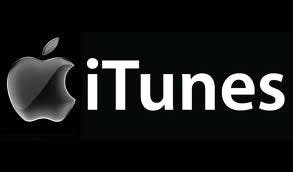Compared to Apple Inc. (NASDAQ:AAPL)‘s massive iPhone business, iTunes is seemingly negligible But that’s no reason to deny iTunes’ significance. Among other digital stores, iTunes stands out as a major player. As the war for digital content continues, Apple may indeed face challenges, but a few advantages should help iTunes remain strong in the future amid increasing competition.

The network effect is probably one of the strongest competitive advantages a company can have, as recently noted by Tim Cook at the Goldman Sachs Group, Inc. (NYSE:GS) Technology and Internet Conference: “We’ve found a huge correlation of people getting into Apple Inc. (NASDAQ:AAPL) and buying their first product and then buying another product.” This is partly due to Apple’s strong network effect in which the relevance of its digital stores (iTunes and Mac App Store) become more useful and relevant with every additional user gained. The more iTunes is used, the more interested developers and major studios will be in adding content to the platform.
With the world’s largest a la carte digital store integrated seamlessly with its hardware and software, Apple Inc. (NASDAQ:AAPL)’s offering is both compelling and “sticky.” iTunes has a whopping 500 million iTunes accounts . Plus, over the last several years, the iTunes experience has been enhanced with the addition of the Mac App store and iCloud. iCloud’s ability to seamlessly transport content between one device to another with incredible ease adds tremendous strength to iTunes’ offerings. Already, iCloud users have grown from 85 million to over 250 million in fiscal 2012.
iTunes’ solid growth and substantial size
Horace Dediu of Asymco recently reported numbers that really put iTunes’ growing size into perspective:
- It was only two years ago when Apple Inc. (NASDAQ:AAPL)’s iTunes business surpassed its iPod business in revenue. Now, in the company’s first quarter, iTunes revenue was 72% greater than iPod revenue. And based on Dediu’s estimates, iTunes is also more profitable.
- iTunes is on track to surpass Apple’s Mac business in 2013. In fact, when Apple’s iTunes and accessories (including Apple TV) revenue are combined, Mac sales are dwarfed in comparison, representing just about half of the combined segments.
- Over the past two years, Apple’s iTunes business has averaged an annualized growth rate of 30%, avoiding seasonal volatility.
To put things into further perspective, when Apple Inc. (NASDAQ:AAPL)’s fourth quarter iTunes and accessories revenue are combined, revenue surpasses sales of every major phone vendor except Samsung.
Due to reporting standards, it’s difficult to estimate Samsung’s mobile phone sales, though according to a Gartner, Inc. (NYSE:IT) report, the company sold 107 million units during the fourth quarter — more than double Apple’s.
What does all this mean? As the absolute size of iTunes grows, investors might need to spend more time valuing Apple Inc. (NASDAQ:AAPL)’s iTunes segment in terms of its business prospects as opposed to viewing it simply as an extension of Apple’s ecosystem that strengthens the company’s unique selling proposition.





